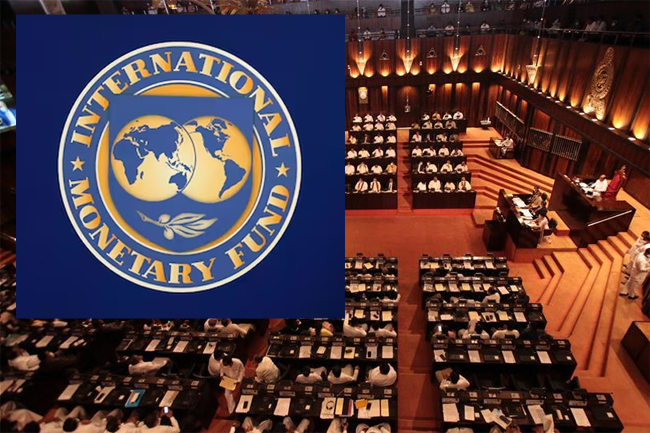Sri Lanka’s parliament passed a controversial new central bank law which the opposition slammed for lack of accountability in a country where there is growing understanding of the inevitable effects of central bank rate cuts enforced by inflationary open market operations.
The law passed with 66 legislators voting for and 23 voting against in a partially empty house where the debate was disrupted earlier in the day amid protests that there was no quorum.
“The intention of the new law is to correct past mistakes,” State Minister Shehan Semasinghe said.
The opposition called for amendments to make the central bank which has a history of printing money through various liquidity tools for macro-economic policy.
Countries with bad money central banks run on so-called Keynesian policies end up in the arms of the International Monetary Fund again and again, while their currencies depreciate permanently due to conflicting aims and goals.
The passage of the controversial law is a requirement under the 17th IMF program that the flexible exchange rate central bank dragged the country into.
The opposition slammed the law for giving independence to the agency without proper accountability provisions.
“I am not at ease with this bill, because I feel we have come back to the same place again,” opposition legislator Kabir Hashim said.
“The central bank still has along with its primary objectives of price stability, contradictory, output gap targeting, exchange rate determination, policy rate determination, and inflation targeting.
“This is a toxic mix.”
Output gap targeting or active macro-economic policy involves printing money for growth or cutting policy rates using inflationary open market operations.
The IMF itself taught the country to calculate a potential output, dangling a goal for the central bank to print money to reach it.
The practice eventually ended in sovereign default.
Countries with bad money central banks with contradictory money and exchange policies continue to have exchange and trade controls, social unrest and repeated IMF programs.
Hashim said as far back as 1966, former President J R Jayewardene (before he became President) had engaged B R Shenoy to come up with solutions when the country ran into forex problems in 1966.
Sri Lanka had two back to back IMF programs – with the second starting before the first one ended – in that period. Shenoy had advocated a clean float.
In 1980 when Jayewardene liberalized the economy, the central bank was again printing money and Goh Keng Swee had and advised him not to allow the central bank to print money.
He also warned there was no benefit in depreciating the currency.
Singapore does not have a policy rate and operates on currency board principles.
But the advice was not carried out, Hashim said.
The law has a provision which legitimizes printing money to reach a potential output, or active macroeconomic policy while having exchange rate policy and reserve management objectives.
Opposition legislator Harsha de Silva said the law was a step in the right direction, but amendments were needed and hoped the government would accept them.
De Silva warned central banks cannot create growth.
The central bank will continue to print money for provisional advances for the government with an amendment that they would be printed at market rates, raising the question why the money was not raised from the market in the first place instead of being printed to blow the balance of payments apart as in the past.
Hashim told parliament that several East Asian countries showed during the Pandemic that it was possible to raise real money and even cut taxes, while countries that started Covid re-finance funds including Nigeria and Pakistan had ended up in crises, not to mention Sri Lanka.
Accountability in the new law was weak or non-existent, opposition legislators warned.
Related Sri Lanka legislators slam new IMF backed central bank law for lack of accountability
“The central bank can continue to create instability as in the past mis-using certain clauses and powers in the bill,” Hashim warned.
“There are no penalties for central bankers who fail to meet inflation targets set by parliament.”
“They are allowed to make people poor overnight through inflation and go Scott free.


